Chosen theme: Off-the-Beaten-Path Eco-Adventures. Step beyond crowded viewpoints into living landscapes where your curiosity fuels conservation, your footsteps tread lightly, and every journey strengthens the communities and ecosystems that welcome you.
Finding True Off-the-Beaten-Path Eco-Adventures
Reading the Landscape for Hidden Biodiversity
Study contour lines, watershed maps, and official trail networks to locate lightly used routes that already exist. Cross-reference protected area guidelines, IUCN listings, and local ranger notes. Seek habitats with strong community stewardship rather than fragile, unregulated hotspots.
Timing Your Trip to Leave the Lightest Footprint
Travel during shoulder seasons that avoid wildlife breeding, nesting, or migration peaks. Aim for stable trail conditions to reduce erosion. Choose weekdays, start early, and stagger groups so paths rest between parties, giving soil and vegetation crucial recovery time.
Partnering Locally for Genuine Access
Secure permits early and hire community-based guides who know seasonal sensitivities, sacred sites, and safe water sources. Pay fair rates, learn greetings, and ask consent before photos. Your respectful curiosity builds trust that keeps access open and benefits shared.

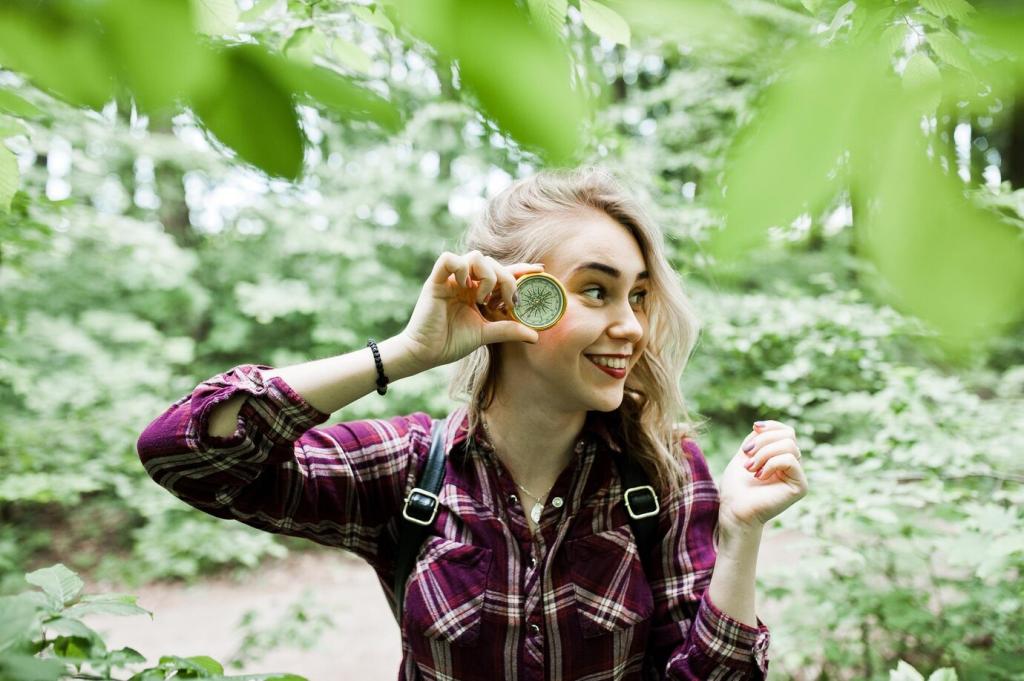
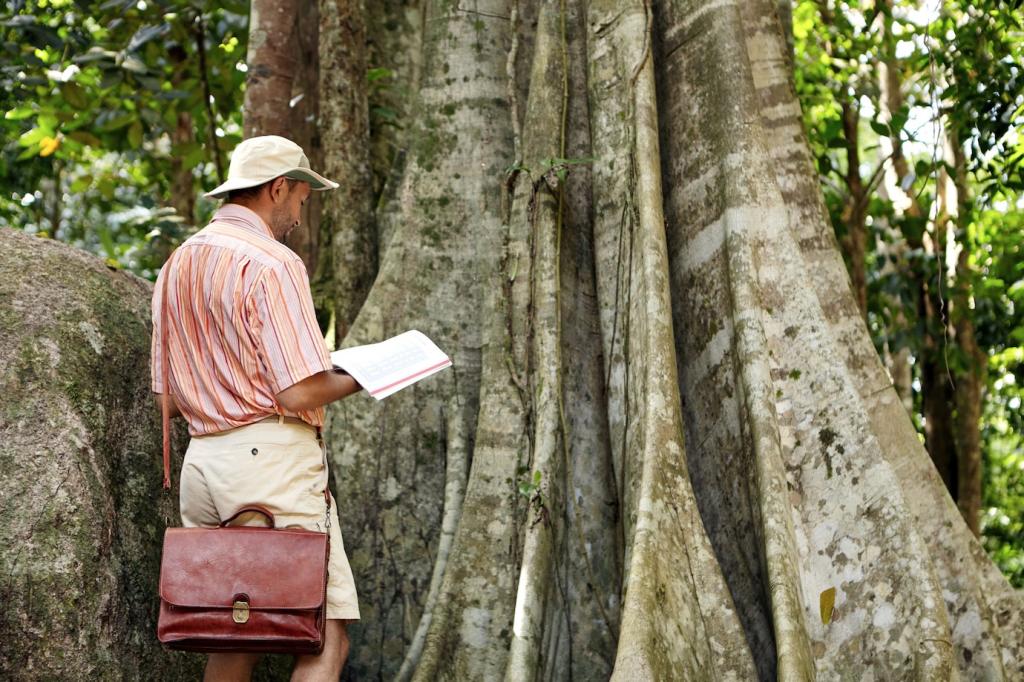
After rare rain, a traveler camped on durable rock and awoke to an explosion of desert wildflowers. Using a red headlamp and wide-angle lens, they photographed from established surfaces only, then shared the story with park educators to discourage trampling.
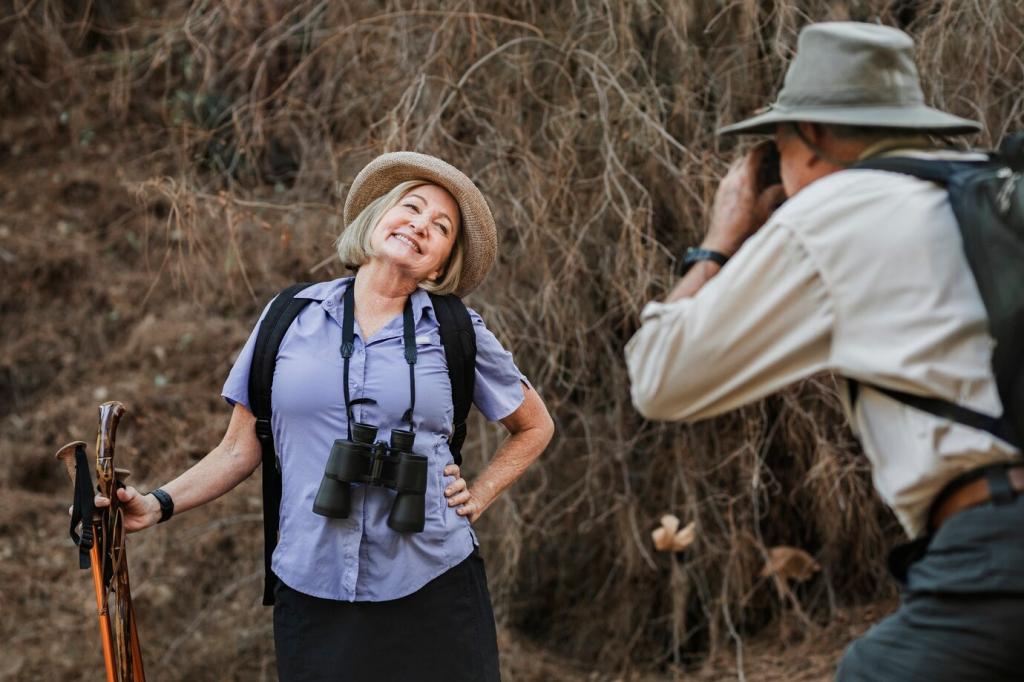
Conservation You Can Do on the Way
01
Turn Curiosity into Data
Log respectful observations on platforms like iNaturalist, eBird, and Reef Life Survey. Photograph without disturbance, capture clear metadata, and verify identifications. Even a few observations from under-surveyed sites help researchers map species ranges and detect climate-related shifts.
02
Cleanups with Community Purpose
Ask local organizers where help matters most before picking up trash. Sort, weigh, and record findings to inform municipal policy about hotspots and problematic packaging. Celebrate small wins, and avoid disrupting nesting beaches or culturally significant areas without explicit guidance.
03
Travel Carbon, Measured and Managed
Choose slow routes, combine trips, and pack efficiently to reduce transport emissions. Offset only after cutting what you can, supporting verified projects that empower local stewardship. Share your reduction plan with friends, inviting them to join and compare strategies.
Food, Water, and Local Flavor
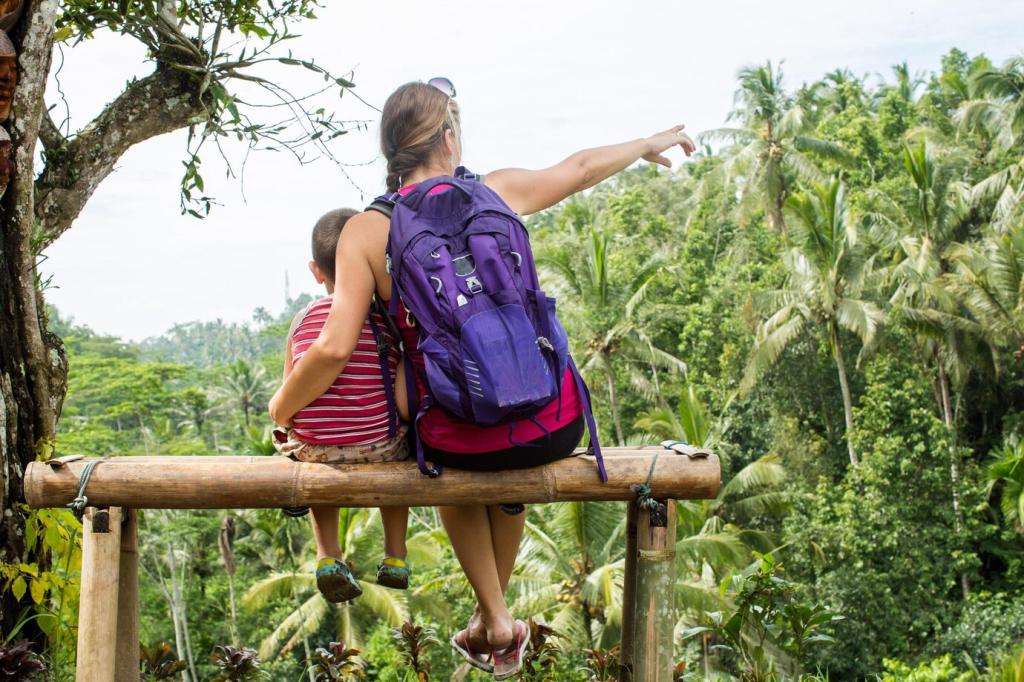
Water That’s Safe Without Plastic
Use gravity filters at camp, UV purification for fast refills, and tablets as backup. Clean equipment properly to prevent cross-contamination. Refill where locals advise, and always carry an emergency liter for long, dry traverses between trusted sources.

Choosing Food That Nourishes People and Place
Seek seasonal, plant-forward meals, and ask vendors which dishes support local farms or fishers using sustainable methods. When culturally appropriate, try invasive species specials that reduce pressure on native stocks. Pay fair prices and return dishes clean to reduce labor.
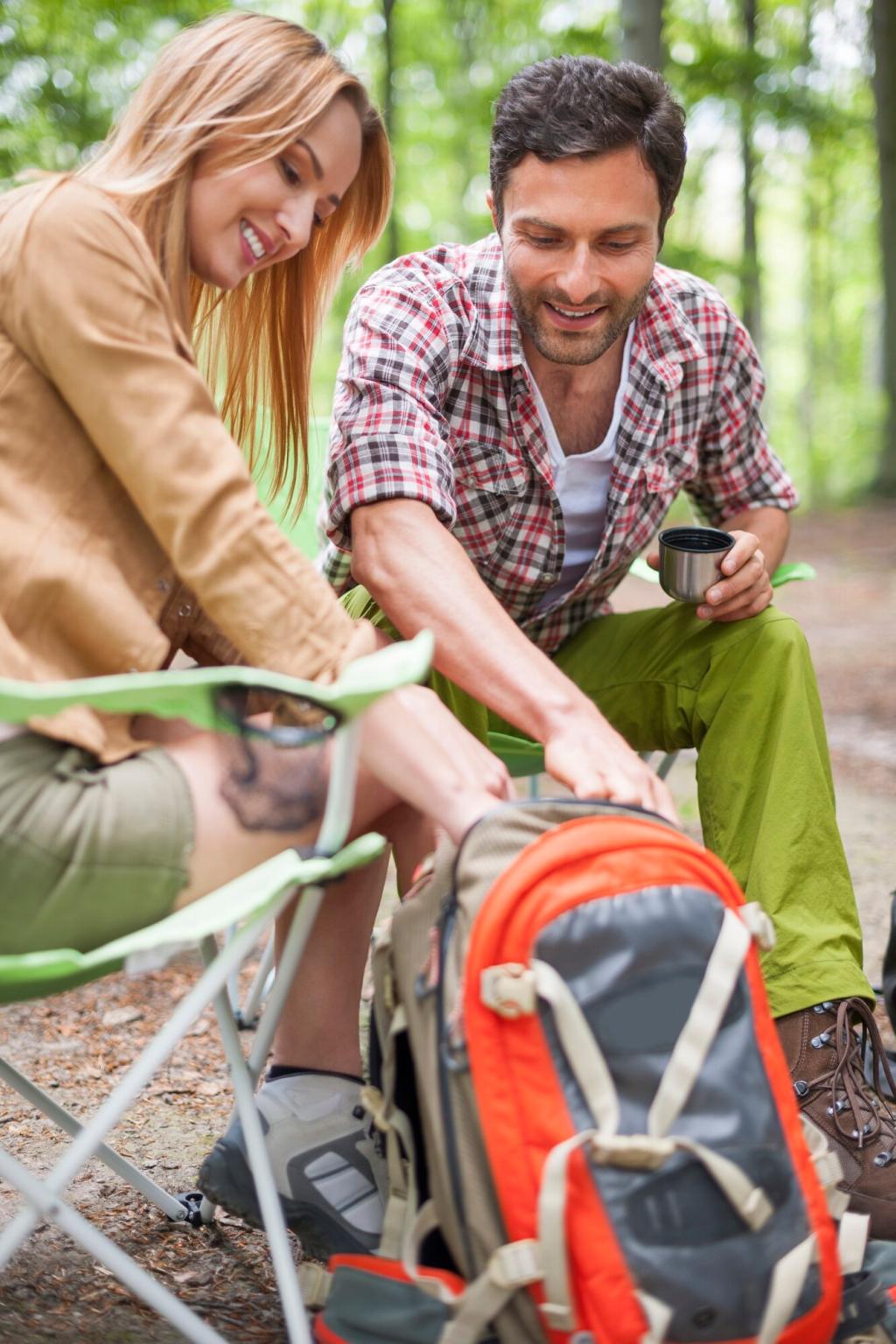
Respectful Dining in Sacred Landscapes
In fragile sites, eat only in designated areas and pack out scraps to avoid wildlife habituation. Keep aromas minimal, eschew loud music, and learn table customs. Gratitude, patience, and dishwater disposal at proper points keep ecosystems and relationships healthy.
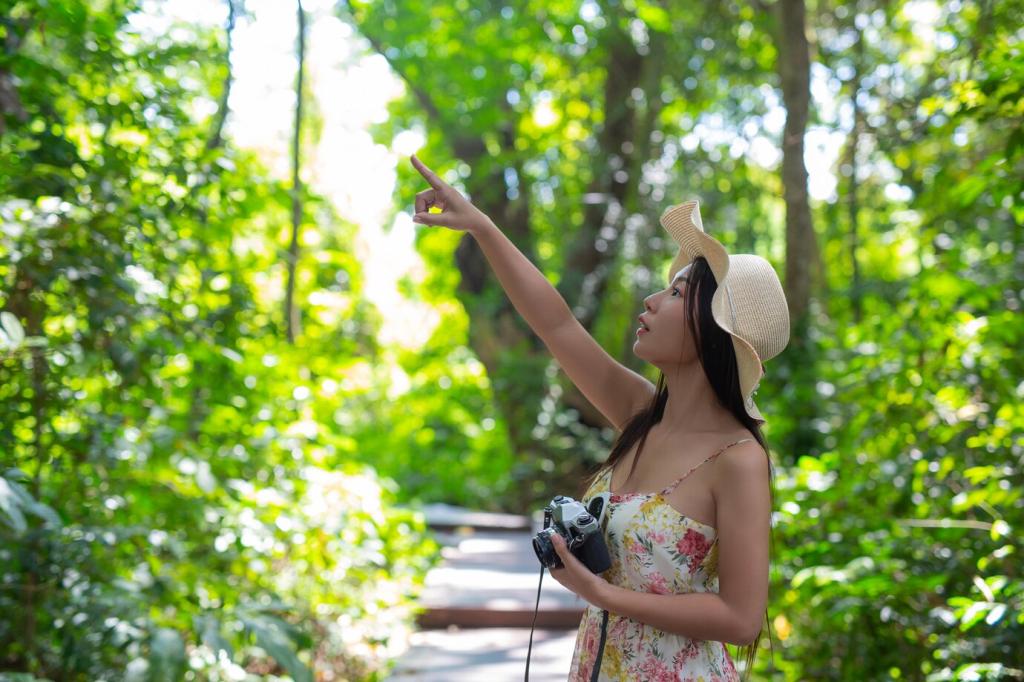


Join the Movement: Share, Learn, Return
01
Sign up to receive quarterly route profiles, packing checklists, and conservation updates from partners on the ground. We highlight community-run initiatives first, helping you plan journeys that spread benefits while avoiding pressure on delicate places.
02
Share a short story about a nearby wetland, ridge, or alleyway garden that changed how you see nature. Include what you learned, how you minimized impact, and a tip for others. Inspiring entries may anchor future collaborative guides.
03
Join our monthly eco-challenges: carry-in carry-out audits, five-species biodiversity logs, or low-light camp routines to protect nocturnal wildlife. Report results, tag us, and invite a friend. Your creativity keeps this movement alive between bigger expeditions.
